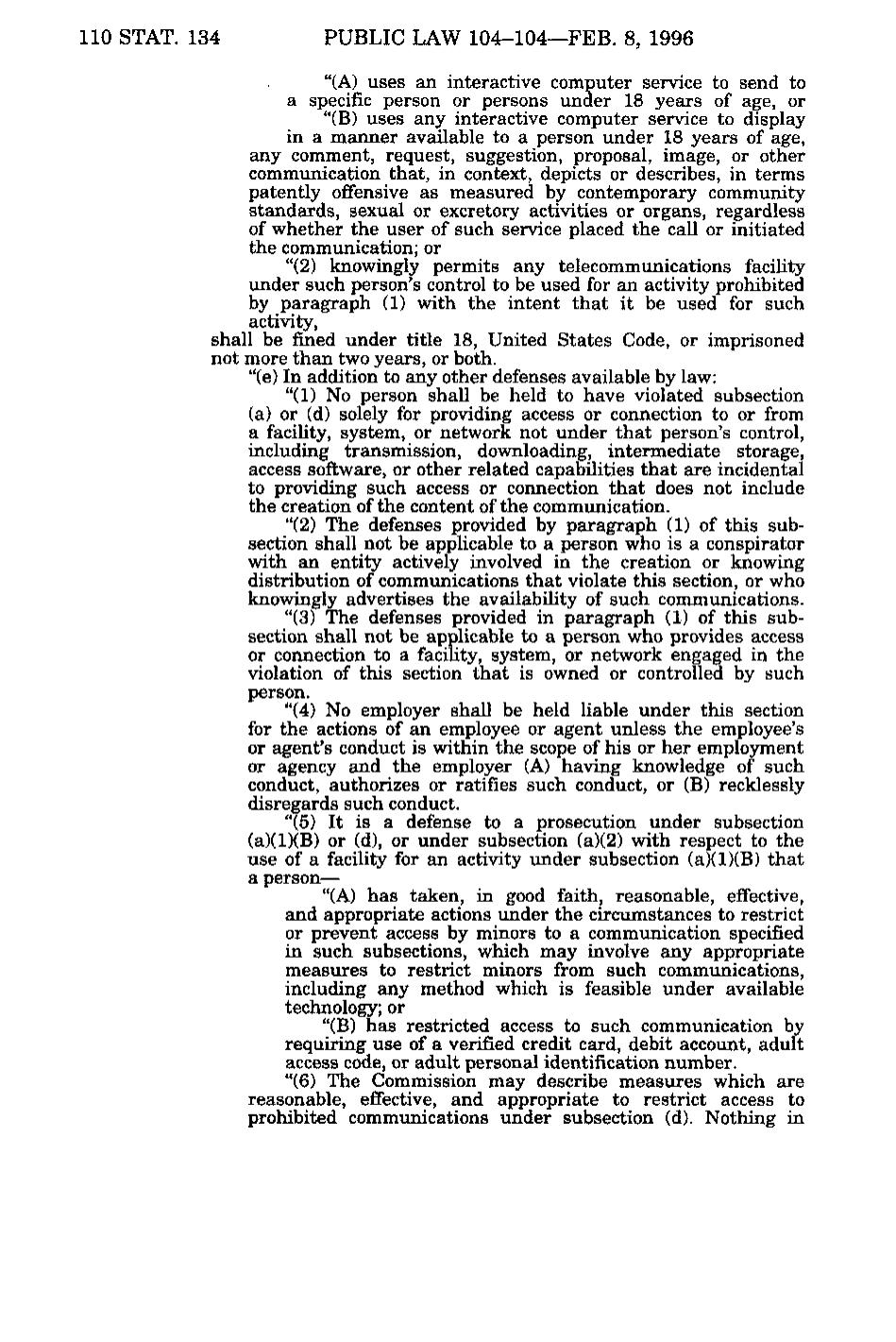110 STAT. 134 PUBLIC LAW 104-104—FEB. 8, 1996 "(A) uses an interactive computer service to send to a specific person or persons under 18 years of age, or "(B) uses any interactive computer service to display in a manner available to a person under 18 years of age, any comment, request, suggestion, proposal, image, or other communication that, in context, depicts or describes, in terms patently offensive as measured by contemporary community standards, sexual or excretory activities or organs, regardless of whether the user of such service placed the call or initiated the communication; or "(2) knowingly permits any telecommunications facility under such person's control to be used for an activity prohibited by paragraph (1) with the intent that it be used for such activity, shall be fined under title 18, United States Code, or imprisoned not more than two years, or both. "(e) In addition to any other defenses available by law: "(1) No person shall be held to have violated subsection (a) or (d) solely for providing access or connection to or from a facility, system, or network not under that person's control, including transmission, downloading, intermediate storage, access software, or other related capabilities that are incidental to providing such access or connection that does not include the creation of the content of the communication. "(2) The defenses provided by paragraph (1) of this subsection shall not be applicable to a person who is a conspirator with an entity actively involved in the creation or knowing distribution of communications that violate this section, or who knowingly advertises the availability of such communications. "(3) The defenses provided in paragraph (1) of this subsection shall not be applicable to a person who provides access or connection to a facility, system, or network engaged in the violation of this section that is owned or controlled by such person. "(4) No employer shall be held liable under this section for the actions of an employee or agent unless the employee's or agent's conduct is within the scope of his or her employment or agency and the employer (A) having knowledge of such conduct, authorizes or ratifies such conduct, or (B) recklessly disregards such conduct. "(5) It is a defense to a prosecution under subsection (a)(1)(B) or (d), or under subsection (a)(2) with respect to the use of a facility for an activity under subsection (a)(1)(B) that a person— "(A) has taken, in good faith, reasonable, effective, and appropriate actions under the circumstances to restrict or prevent access by minors to a communication specified in such subsections, which may involve any appropriate measures to restrict minors from such communications, including any method which is feasible under available technology; or "(B) has restricted access to such communication by requiring use of a verified credit card, debit account, adult access code, or adult personal identification number. "(6) The Commission may describe measures which are reasonable, effective, and appropriate to restrict access to prohibited communications under subsection (d). Nothing in
�
